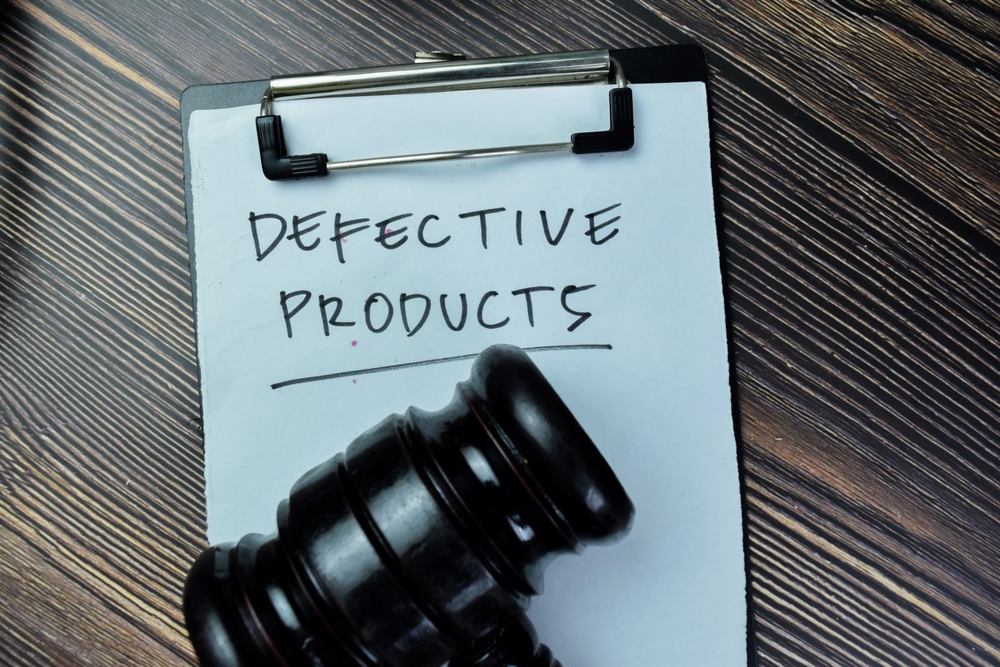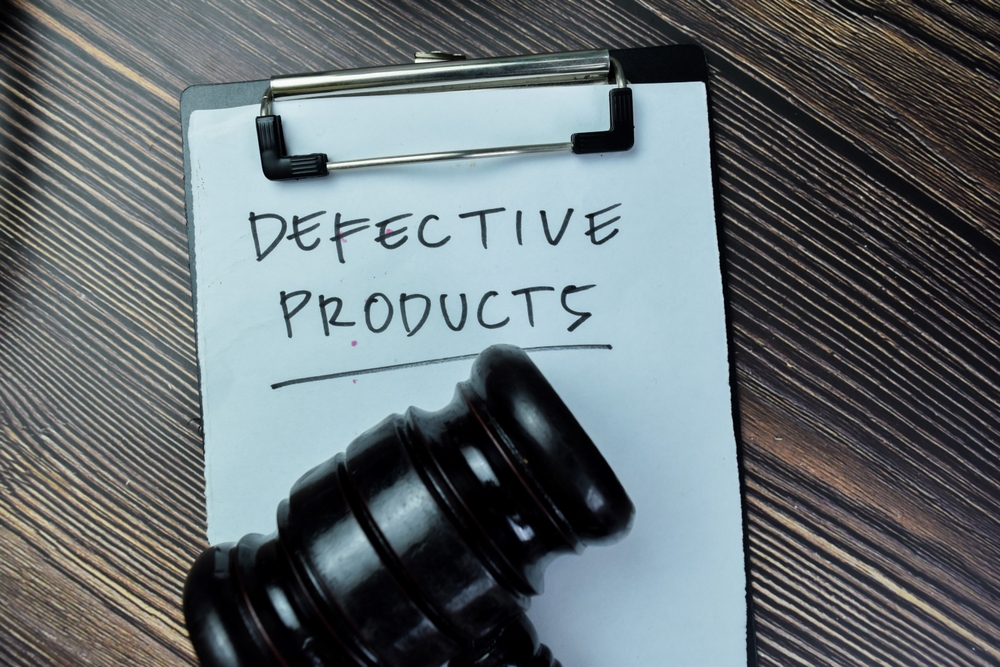
Faulty Consumer Products
Your Rights After Injury from Defective Consumer Goods in Texas
Understanding Faulty Consumer Product Claims in Texas
When everyday consumer products fail and cause injuries, Texas law provides important protections for victims through comprehensive product liability statutes. These cases encompass injuries from a wide range of consumer goods, including electronics, appliances, toys, household items, and recreational products that are defectively designed, manufactured, or labeled. Understanding your rights under Texas law can help you navigate the complex process of seeking compensation for injuries caused by faulty consumer products.
What Constitutes a Faulty Consumer Product Claim in Texas
Texas product liability law recognizes that consumer products can be faulty in several ways that create unreasonable dangers for users. Manufacturing defects occur when products deviate from their intended design during production, creating dangerous conditions that would not exist in properly manufactured items. These might include electronics with faulty wiring that causes fires, appliances with mechanical defects that lead to injuries, or toys manufactured with toxic materials not specified in the original design.
Design defects represent another category of faulty products where the original design itself creates unreasonable dangers. Even when manufactured perfectly according to specifications, these products pose risks that could have been eliminated through alternative designs. Examples include children's toys with designs that create choking hazards, household appliances with inadequate safety mechanisms, or recreational equipment designed without proper protective features.
Marketing defects involve failures to provide adequate warnings, instructions, or safety information about known risks associated with consumer products. Texas law requires manufacturers to warn consumers about non-obvious dangers and provide adequate instructions for safe use. Common examples include household chemicals sold without proper warning labels, power tools lacking adequate safety instructions, or consumer electronics without warnings about potential hazards.
Texas Consumer Protection and Product Liability Laws
The Texas Products Liability Act, found in Chapter 82 of the Texas Civil Practice and Remedies Code, establishes the legal framework for faulty consumer product claims. This comprehensive statute requires plaintiffs to prove that the product was defective when it left the manufacturer's control and that this defect was a producing cause of the plaintiff's personal injury, property damage, or death.
Texas follows a modified strict liability approach for product liability claims, which means that injured consumers do not need to prove that manufacturers intended to cause harm or acted negligently. However, the law does require proof that the product was defective and that this defect caused the injury. This standard provides important protections for consumers while establishing clear requirements for successful claims.
The Texas Deceptive Trade Practices-Consumer Protection Act (DTPA) provides additional protections for consumers who purchase faulty products. This law allows consumers to recover actual damages, and in some cases treble damages, when they can prove that sellers engaged in false, misleading, or deceptive acts or practices. The DTPA applies to consumer transactions and can provide additional remedies beyond traditional product liability claims.
Texas law also incorporates federal consumer protection standards, including those established by agencies such as the Consumer Product Safety Commission (CPSC). Products that violate federal safety standards may create a presumption of defectiveness under Texas law, strengthening claims for injured consumers.
Statute of Limitations and Legal Deadlines in Texas
Texas establishes specific time limits for filing faulty consumer product claims that injured parties must carefully observe. The general statute of limitations is two years from the date of injury, though Texas follows a discovery rule that may extend this period in certain circumstances. Under the discovery rule, the two-year period begins when the injured party discovers, or reasonably should have discovered, both the injury and its connection to the faulty product.
This discovery rule can be particularly important in cases involving consumer products that cause latent injuries or conditions that develop over time. For example, exposure to toxic substances in household products might not manifest symptoms immediately, and the statute of limitations would begin when the connection between the exposure and the health condition becomes apparent or should have been discovered through reasonable investigation.
Texas also imposes a statute of repose that generally bars product liability claims filed more than 15 years after the product was first sold. However, there are exceptions to this rule for certain types of products and circumstances, and the interaction between the statute of limitations and statute of repose can create complex legal issues that require careful analysis.
For wrongful death cases involving faulty consumer products, Texas provides a two-year statute of limitations from the date of death. Surviving family members must act quickly to preserve their rights, as this deadline is strictly enforced by Texas courts.
Immediate Steps After a Faulty Consumer Product Injury
Taking appropriate action immediately after being injured by a faulty consumer product can significantly impact your ability to recover compensation and protect your legal rights. Your first priority should always be obtaining necessary medical attention, both to address your injuries and to create medical documentation linking your condition to the defective product.
Preserving the faulty product and all related materials is crucial for building a strong legal case. Do not dispose of the product, attempt repairs, or allow others to alter its condition. Keep all packaging, instruction manuals, warranty information, and receipts as they may provide important evidence about the product's design, intended use, and chain of distribution. Take detailed photographs of the product showing its condition, any visible defects, and the circumstances of the incident.
Document your injuries thoroughly with photographs and maintain detailed records of all medical treatment received. Keep track of all expenses related to your injury, including medical bills, lost wages, transportation costs for medical appointments, and any modifications to your home or lifestyle necessitated by the injury.
Report the incident to appropriate parties, including the manufacturer, retailer, and relevant government agencies such as the Consumer Product Safety Commission. However, be cautious about making detailed statements without legal representation, as these communications may be used later in legal proceedings.
Damages and Compensation Available Under Texas Law
Texas law provides several categories of damages that may be available to victims of faulty consumer products. Economic damages encompass all quantifiable financial losses resulting from the injury, including medical expenses, lost wages, and property damage. Medical expenses include not only current treatment costs but also future medical care reasonably certain to be required as a result of the injury.
Lost wage calculations in Texas consider both wages already lost due to the injury and reduced earning capacity if the injury affects your ability to work in the future. Expert testimony may be necessary to establish the full extent of economic losses, particularly in cases involving permanent disabilities or long-term treatment requirements.
Non-economic damages compensate for intangible losses that do not have specific monetary values but significantly impact the injured party's life. These include pain and suffering, mental anguish, loss of enjoyment of life, and disfigurement. Texas courts recognize that faulty consumer product injuries often involve substantial non-economic impacts that deserve compensation.
In cases involving particularly egregious conduct by manufacturers or sellers, Texas law allows for exemplary damages, commonly known as punitive damages. However, these damages are subject to specific statutory caps and procedural requirements. Exemplary damages are designed to punish defendants and deter similar conduct, rather than simply compensate injured parties.
Property damage represents another category of recoverable damages when faulty consumer products damage other property. This might include structural damage to homes caused by defective appliances, damage to vehicles caused by faulty automotive products, or destruction of personal property resulting from product malfunctions.
Building a Strong Faulty Consumer Product Case
Successful faulty consumer product cases in Texas typically require extensive investigation and expert testimony to establish the technical aspects of product defects and their relationship to injuries. Engineering experts may be necessary to analyze product design, manufacturing processes, and failure modes to demonstrate how the product was defective and dangerous.
Medical experts play a crucial role in establishing the causal connection between product defects and injuries. These professionals can explain how the defective product caused specific injuries and provide opinions about future medical needs and limitations resulting from the incident.
Industry experts may provide valuable testimony about safety standards, manufacturing practices, and whether products met applicable industry standards. Former employees of manufacturing companies sometimes provide insight into corporate knowledge of defects, quality control failures, or decisions that prioritized profits over safety.
Economic experts may be necessary to calculate complex damages, particularly in cases involving permanent injuries, reduced earning capacity, or extensive future medical needs. These professionals can provide detailed analyses of financial losses that help courts and juries understand the full scope of damages.
Frequently Asked Questions About Texas Faulty Consumer Product Claims
What is the Texas Products Liability Act?
The Texas Products Liability Act is the state law that governs claims involving defective products. It establishes that plaintiffs must prove the product was defective when it left the manufacturer's control and that this defect caused their injury.
How long do I have to file a faulty consumer product claim in Texas?
You generally have two years from the date you discovered or should have discovered the injury to file a product liability lawsuit in Texas. There is also a 15-year statute of repose that may bar older claims.
Can I recover damages under the Texas DTPA for a faulty consumer product?
Yes, the Texas Deceptive Trade Practices-Consumer Protection Act may provide additional remedies for faulty consumer products, including actual damages and potentially treble damages in qualifying cases.
What should I do immediately after being injured by a faulty consumer product?
Seek medical attention immediately, preserve the product and all packaging, document your injuries with photographs, keep all receipts and records, and consult with a product liability attorney before making statements to manufacturers or insurers.
Browse Articles for "Faulty Consumer Products" in Texas:
Start Your FREE Consultation
Complete the form for a Free Consultation. No upfront fees, swift action, and we’re only paid when we succeed for you.
Ask Us If You Qualify
We’re here to help you take on your fight—whether it’s a car accident, a dangerous drug, or a workplace injury gone wrong. One call starts it all, and we’re with you every step, no upfront cost required.
- Free Case Review
- No Fees Until Victory
- Millions Recovered
- Personal Strategy
- California Coverage
- Relentless Case Pursuit

